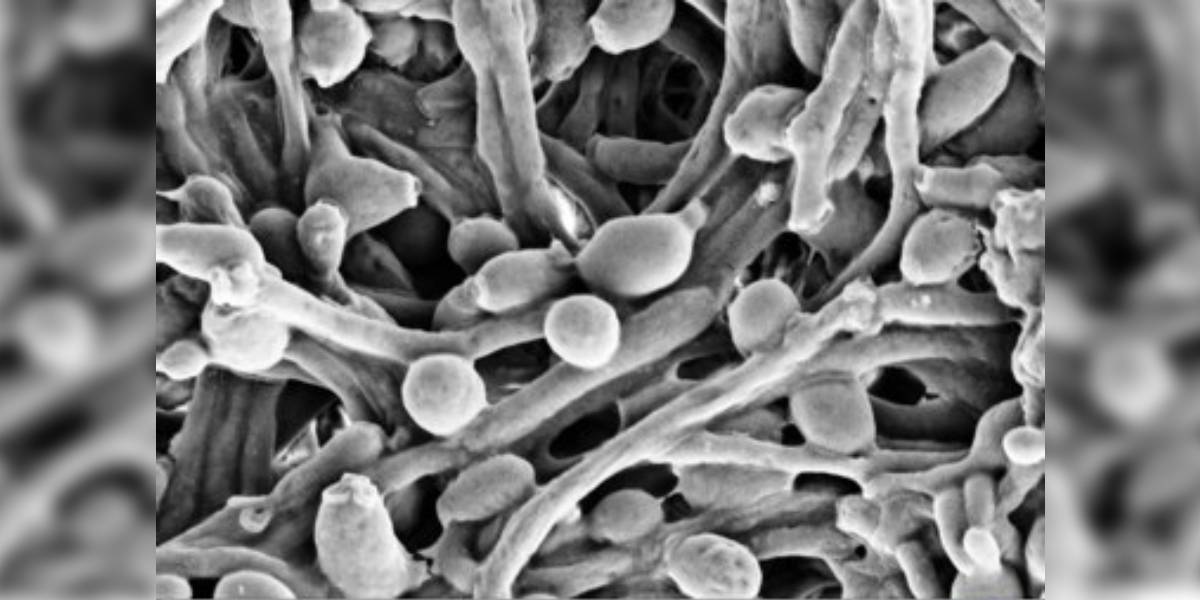By Majnu Babu,Veni E N
Copyright thesouthfirst

IIT-Madras, ICMR-NIRRCH develop unique method to fight fungal pathogen
The study marks a significant step in addressing systemic candidiasis, a life-threatening fungal infection with mortality rates reaching as high as 63.6% in severe cases.
Synopsis: Candida albicans is a yeast that normally exists harmlessly in the human body but can cause invasive infections when the immune system is compromised. Systemic candidiasis occurs when the pathogen spreads to the bloodstream and vital organs, often leading to fatal outcomes.
Researchers from the Wadhwani School of Data Science and AI (WSAI), IIT-Madras, in collaboration with the ICMR-National Institute for Research in Reproductive and Child Health (ICMR-NIRRCH), have developed a unique method to combat the fungal pathogen, Candida albicans (CAL).
The study marks a significant step in addressing systemic candidiasis, a life-threatening fungal infection with mortality rates reaching as high as 63.6% in severe cases.
By combining computational modelling and experimental validation, the team identified hidden vulnerabilities in the pathogen’s metabolism that could help in the development of more effective antifungal drugs.
The findings, published in the peer-reviewed journal, Cell Communication and Signaling, underscore the urgent need for new treatment strategies amid rising drug resistance and limited antifungal options.
Also Read: Invasive giant African snail spotted across Chennai
Context and key findings
Candida albicans is a yeast that normally exists harmlessly in the human body but can cause invasive infections when the immune system is compromised. Systemic candidiasis occurs when the pathogen spreads to the bloodstream and vital organs, often leading to fatal outcomes.
India records an estimated 4.7 lakh invasive candidiasis cases annually, while globally, the disease affects over 1.5 million people, with nearly one million deaths.
Traditional drug discovery methods for fungal infections often depend on trial-and-error screening, a slow and inefficient process. To overcome this limitation, the researchers built an integrated host-fungal metabolic model by merging the CAL model iRV781 with the human metabolic model Recon3D.
This approach enabled simulations of how the pathogen behaves inside the host, revealing weak points in its metabolic system.
One of the critical discoveries involved arginine metabolism, a process crucial for the pathogen’s virulence. The study highlighted ALT1, an enzyme that acts as a metabolic bottleneck for Candida albicans.
Experiments in both laboratory and mouse models showed that disabling this enzyme reduced the fungus’s ability to cause infection.
The integrated model also helped identify vulnerabilities that are not evident in standard laboratory cultures, offering new pathways to develop drugs capable of bypassing resistance mechanisms.
Such targeted therapies could improve survival rates, lower mortality, and reduce the overall cost of treatment.
Also Read: Chennai hospital performs hybrid neurosurgery to remove brain tumour
Future research and real-world use
Prof. Karthik Raman, from the Centre for Integrative Biology and Systems Medicine (IBSE) at IIT-Madras, who led the research, said that this work opens doors to diversifying antifungal drugs.
He noted that the approach can help address the limitations of existing therapies, which often lose effectiveness due to resistance.
Explaining the next steps, Prof. Raman said that while preliminary findings have been validated in animal models, further mechanistic studies are required.
The researchers aim to collaborate with clinical partners to test the insights on patient samples and work with industry stakeholders to translate the results into real-world antifungal treatments.
Corresponding author Dr. Susan Thomas, Principal Investigator at ICMR-NIRRCH, highlighted the novelty of the approach, particularly the integration of the CAL and Recon3D models.
She said this methodology enabled the team to capture pathogen responses during infection and uncover vulnerabilities that traditional research methods often overlook.
Together, the researchers believe the study demonstrates India’s growing strength in interdisciplinary research and its potential to contribute global solutions in healthcare.
The collaboration between IIT-Madras and ICMR-NIRRCH stands as a testament to the impact of data-driven science in addressing pressing public health challenges.
(Edited by Majnu Babu).



